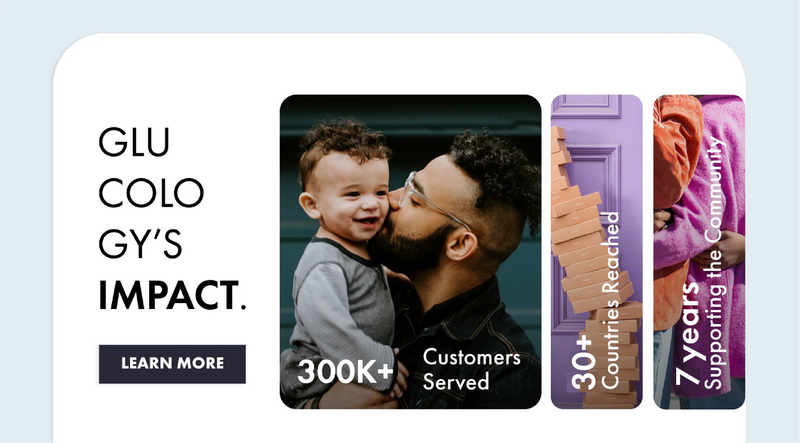
Hypoglycaemia, or a "hypo", is an abnormally low level of glucose in our blood (less than four millimoles per litre).
When our glucose levels are too low, our body doesn't have enough energy to carry out its activities. Hypoglycemia is most commonly associated with both type 1 & 2 diabetes insulin dependents
Why do hypos happen?
Understanding why we get hypos can help us minimize them from happening. We don’t always know why hypos happen, but some things will make them more likely occur. These might include:
- missing or delaying a meal
- not having enough carbs in our last meal
- doing a lot of exercise without having extra carbohydrate or without reducing our insulin dose (if you take insulin)
- taking more insulin (or certain diabetes medication) than needed
- drinking alcohol on an empty stomach.
- Insulin and some other diabetes medications can make us more likely to have a hypo.
A hypo can happen quickly. So it’s important that we know what the signs are and that we know how to treat a hypo if we have one.
Symptoms of a low blood sugar level (Hypo)
A low blood sugar level can affect each of us differently. It is important that each of us learn how it makes us feel, although our symptoms may change over time.Early signs of a low blood sugar level include:
- sweating
- feeling tired
- dizziness
- feeling hungry
- tingling lips
- feeling shaky or trembling
- a fast or pounding heartbeat
- becoming easily irritated, tearful, anxious or moody
- turning pale
If a low blood sugar level is not treated, we may get other symptoms, such as:
- weakness
- blurred vision
- confusion or difficulty concentrating
- unusual behaviour, slurred speech or clumsiness (like being drunk)
- feeling sleepy
- seizures or fits
- collapsing or passing out
A low blood sugar level can also happen while we are sleeping. This may cause us to wake up during the night or cause headaches, tiredness or damp sheets (from sweat) in the morning.
How to treat hypoglycaemia?
If we have hypoglycemia symptoms, we should do the following:
- Eat or drink 15 to 20 grams of fast-acting carbohydrates.
These are sugary foods or drinks with no protein or fat that are easily converted to sugar in the body. Try glucose tablets or gel, fruit juice, honey, or sugary candy.
- We should test our blood sugar again after 10 to 15 minutes to check it is back above 4mmol/l.
If it is still less than 4, we should have some more fast-acting carbohydrate and retest after 10 minutes.
- After a hypo, we may need to eat or drink a bit more. This is to stop our sugar levels going down again.
We can try to eat 15 to 20g of a slower-acting carbohydrate. This could be a:
- sandwich
- piece of fruit
- bowl of cereal
- glass of milk.
Or it could be your next meal, if it’s due.
If you’re feeling too drowsy or confused to eat or drink, ask someone to help you.
If we continue to have low blood sugar episodes, we should share our blood sugar, insulin, physical activity, and food logs with our doctor. They may be able to identify patterns and help prevent lows by adjusting the timing and amount of your insulin, physical activity, and meals.
To make food logs more seamless and easier to document, check out our smart nutrition scale that comes with an integrated food diary app.

The content of this Website or Blog is not intended to be a substitute for professional medical advice, diagnosis, or treatment. Always seek the advice of your physician or other qualified health provider with any questions you may have regarding a medical condition. Never disregard professional medical advice or delay in seeking it because of something you have read on this Website or Blog. If you think you may have a medical emergency, call 911 (in the US) or 000 (in Australia) immediately, call your doctor, or go to the emergency room/urgent care.
It all began in 2016 when our founder wanted to make daily life easier by simplifying diabetes management. He realised that IBD Medical had the potential to ease the burden of people living with diabetes and empower them. This was when Glucology was born in 2017 in Sydney, Australia.
Glucology was created by IBD Medical and designed to provide stylish, discrete and innovative solutions for people living with diabetes. It gives people access to a bespoke line of support products at an affordable price.
I take the Rysodeg 70/30 insulin injection 💉.
However I tend to have hypos as well as highs quite frequently. My insulin dosage is 36 units before my evening meal.I’m very confused at the moment. For example, yesterday I clocked 6.5 ks of walking ate normally, did a bit of gardening etc & yet my glucose level at bedtime was 11.9. This is only one time example.Hypos & highs are often experienced in spite of taking Ryzodeg.
Have I become immune to insulin intake? BTW I’m 80 years old.